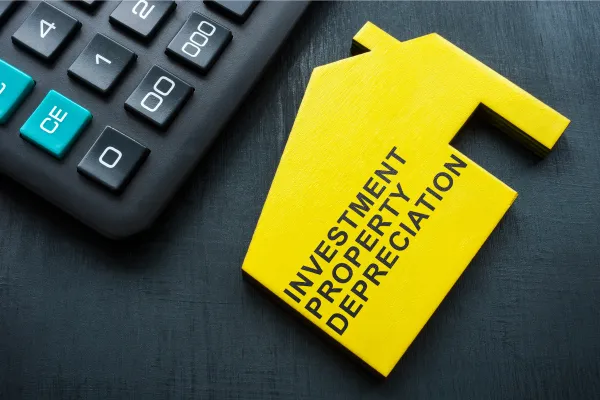Rise Capitals Articles To Educate And Inspire

Maximizing Tax Savings with Bonus Depreciation in Real Estate
"An investment in knowledge pays the best interest." - Benjamin Franklin
Bonus depreciation in real estate is a fantastic tool for investors to reduce taxable income. Until the end of 2022, you can deduct the full cost of some capital improvements in the same year you make the expense.
Key Points:
Bonus depreciation lets you deduct the total cost of improvements in the same year.
It's currently at 100% but will phase out by the end of 2026.
Unlike Section 179 deductions, there’s no annual dollar limit for bonus depreciation.
How Depreciation Works
Depreciation allows real estate investors to deduct property wear and tear from their pre-tax income. You can depreciate most tangible property like buildings, furniture, and appliances, as long as:
You own the property (not renting it).
It's used for business or investment.
It has a useful life of more than one year.
There are three main types of depreciation:
Straight-Line Depreciation: Depreciate residential real estate over 27.5 years. For example, a $110,000 rental home would have a $4,000 annual depreciation expense.
Declining Balance Depreciation: Larger initial deductions that decrease over time.
Bonus Depreciation: Deduct 100% of an item’s cost in the first year.
100% Bonus Depreciation
This was increased from 50% to 100% by the Tax Cuts and Jobs Act of 2017, and it’s available until the end of 2022, then it decreases until 2026. For example, if you spend $10,000 on improvements, you can deduct the entire cost in the same year.
Repairs vs. Improvements
Repairs keep a property in its original condition, like fixing a leaky sink, and are deducted the same year. Improvements, like adding a new bedroom, are depreciated over time. Improvements qualifying for bonus depreciation must have a useful life of 20 years or less.
Example
If an investor owns a $110,000 rental home with $14,000 annual rental income and $5,600 operating expenses, they’d have $8,400 pre-tax income. After regular depreciation ($4,000) and bonus depreciation ($10,000 for new appliances), the taxable income would be $0.
New Investment Depreciation
You can claim bonus depreciation on new purchases by doing a cost segregation study, which breaks down a property into different depreciation components.
Bonus Depreciation Schedule
The 100% bonus depreciation applies to improvements made until the end of 2022. After that, it phases out through 2026:
2021-2022: 100%
2023: 80%
2024: 60%
2025: 40%
2026: 20%
2027 and beyond: 0%
Bonus Depreciation vs. Section 179
While bonus depreciation is for property improvements, Section 179 is for equipment like office computers. Unlike Section 179, bonus depreciation isn’t limited to an annual amount or a business’s profit, and the item doesn’t need to be used more than 50% for business.
New Legislative Updates
The new Tax Relief for American Families and Workers Act of 2024 aims to revive 100% bonus depreciation for property improvements placed in service from December 31, 2022, to January 1, 2026. This means businesses can again deduct the full cost of qualifying property immediately. Make sure to stay updated as this bill progresses through the Senate.

